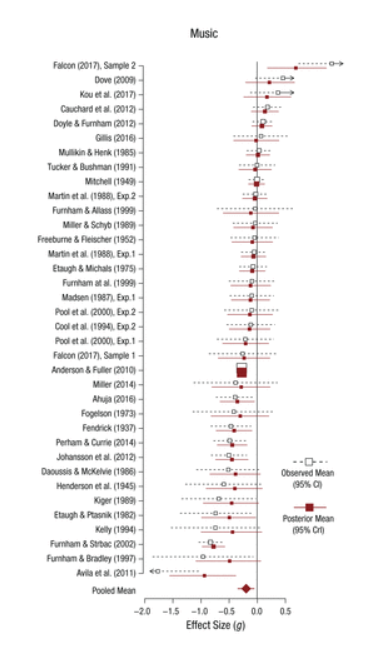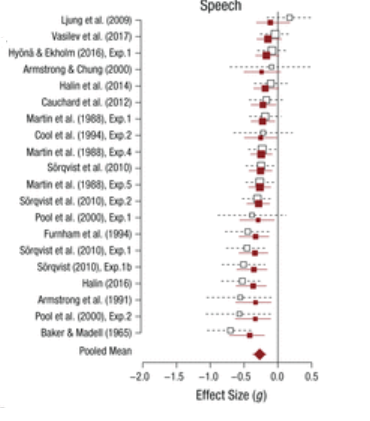The article concluded that that background noise, speech, and music all have small but reliable negative impacts on reading comprehension.
In response, several folks on twitter commented as much to say “ok, so we should tell kids not read with music on.”
I am not so sure.
This is a point of interpretation around which Todd Rose framed his book, The End of Average. Now I didn’t care much for this book, because I thought Rose took a valid concern and ran much too far with it, but here it’s applicable.
An average is meant as a summary that gives you a sense of the central tendency of a distribution. That doesn’t mean it is a good representative of every data point. To use Rose’s example, if you measure a large group of airplane pilots and find their average height is 69 inches, and then design airplane cockpits assuming “pilots are 69 inches tall,” well, you’ll be disappointed. The cockpit will be a good fit for a few, but will be too big or too small for most.
I criticized Rose’s book because I argued that (1) many principles of the mind do apply pretty well across the board—everyone’s attention is limited, for example and; (2) psychologists are generally aware of the problem Rose identifies. The entire subfield called individual differences is devoted to identifying ways in which we all differ.
The influence of background music on reading may be a case where Rose’s warning is pertinent. The meta-analysis reports a small, consistent cost to reading comprehension when listening to music. Looking at the breakdown of individual studies it’s easy to see that the studies trend towards the stated conclusion.
Contrast that with the studies on the effect that background speech has on reading comprehension.
As the article notes, researchers have sought variables that differentiate why music hurts, fails to influence, or even helps comprehension. For a while they thought introversion/extraversion might be the answer, but that didn’t pan out. Still, I think this is a case where individual difference play an important role.
As far as practice goes, I think this finding could be offered as support for a decision not to play music to every child in a classroom. In a big sample, you’d say it will reduce mean comprehension. But I don’t think it supports telling individual children not to listen to music while they read. (Note too, I see this as one factor among many a teacher would consider in a decision of this sort.)
Here’s another reason I personally wouldn’t be too quick to interpret this meta-analysis as showing people should never listen to music while reading. Some of my students say they like music playing in the background because it makes them less anxious. It could be that a laboratory situation (with no stakes) means these students aren’t anxious (and hence show little cost when the music is off) but would have a harder time reading without music when they are studying. In other words, the laboratory situation may underestimate the frequency that music provides a benefit for a subset of students.


 RSS Feed
RSS Feed